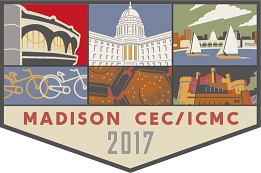Conveners
M2OrC - Focused Symposia - Propulsion VI: Motors & Generators, Cryocool Technologies
- Masataka Iwakuma (Kyushu University)
- Teruo Izumi (AIST)
High-temperature superconducting (HTS) materials offer a mature core-technology for propulsion motor/generators in transportation. In Japan, 1-3 MW synchronous motors for ship propulsion have been developed by industry-national institute-academia liaison using HTS wires. As alternative choice for field poles, melt-growth bulk HTS provides a successful design and making of prototype modules for...
Superconducting electric machines have shown potential for dramatic increases in power density for applications such as offshore wind generation, marine propulsion, and turbo-electric distributed aircraft propulsion. Superconductors exhibit zero loss when in dc conditions, though ac current produces considerable loss due to hysteresis, eddy currents, and coupling. For this reason, many present...
High temperature superconductive (HTS) power machines, such as a power cable, a transformer and a fault current limiter, have been tried to approach commercialization recently. In commercializing of HTS power machines, a cooling system shall have cooling capacity from 2kW to 10kW at 70 K, long maintenance interval and high efficiency (low input power). The HTS power machines are cooled by...
As useful applications for superconductors continue to expand, required cooling methods still tend to be custom tailored for each application. The performance, capabilities, and economies of varying cryogenic cooling options are therefore an important concern for machine designers and end users. Features that are critical in the initial design and must be included in trade-offs when...
The authors give an overview of cooling technologies for cryogenic transportation machines that are most promising, followed by a brief survey and analysis in which way commercially available cryocoolers could be applicable.
